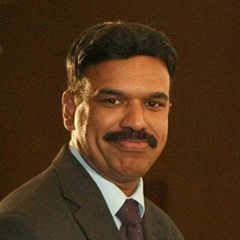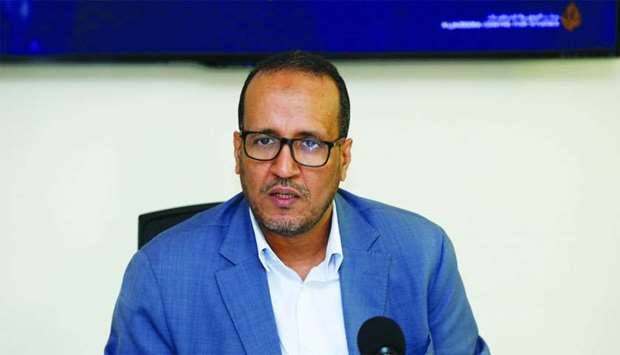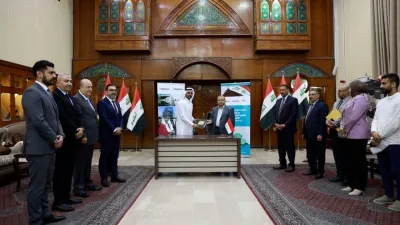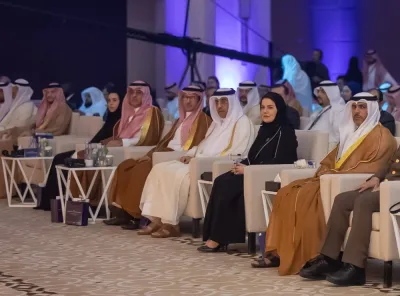This year’s Al Jazeera Forum will be discussing several topics such as ‘Intra-Gulf Relations: Blockade of Qatar: two years later?’ as well as ‘The Gulf’s future role in reshaping power balances in the Middle East.’
The 13th Al Jazeera Forum will be held on April 27 and 28 at Sheraton Doha. Dr Mohmed Elmoctar El Khalil, director of Studies Centre, Al Jazeera Centre for Studies, gave the details of the forum at a press conference on Tuesday.
Other major topics of discussion at the event will be ‘The Reality of the Gulf System and the Erosion of Saudi Influence’; ‘Khashoggi's Assassination: Another crisis that adds to the Regional Complexities’ ; ‘Global Media and the Dilemma of Political Crime’; ‘ The Challenges of US Policy in the Middle East: the Gulf - Iran – Israel’ and ‘Arms Race in the Middle East: Drivers and Trajectories’
Dr El Khalil said the Arab region expanding from the Gulf to the Atlantic has endured, since the popular uprisings in 2011, several civil wars, political labyrinths, and fluctuations in the balance of power, which intersects, or clashes, with the agendas of certain superpowers and regional governmental and non-governmental actors.
“The Gulf crisis and the blockade of Qatar have exacerbated the situation, fragmented the Gulf Co-operation Council’s (GCC) unity, undermined the state members’ ability to face growing regional challenges, and hindered their strategic influence in the rest of the world. The assassination of Saudi journalist, Jamal Khashoggi in Turkey has raised new questions about Saudi Arabia’s domestic as well as regional policies,” noted Dr El Khalil.
The official explained that the Saudi role has declined in the tripartite rivalry with Turkey and Iran in the Gulf region. He pointed out that Saudi Arabia is no longer trusted as the “big sister” that could guarantee the national security of the small members of the GCC and the most recent Gulf summit held in Riyadh failed to heal the rift between Riyadh, Abu Dhabi and Manama, on the one hand, and Doha on the other.
According to the official, faced with this divergence between the Gulf states, some have decided to form new alliances outside GCC driven by security, military and economic considerations.
“Some Gulf states have decided to open up to Israel on the verge of normalisation of diplomatic ties, amidst enthusiasm for paving the way for the "Deal of the Century", which reflects the extent of the strategic confusion growing in the Arab world and the Gulf region in particular. Qatar has decided to withdraw from OPEC and to focus instead on its plan to raise its LNG exports by double in the next six years,” he noted.
He maintained that the so-called “Arab Alliance” in the Yemen war has shrunk into a bilateral liability by Saudi Arabia and UAE in an attempt to defeat Houthis, restore legitimacy, and to reduce the Iranian influence in the civil-war torn country. “In Washington, the US Senate is pushing the Trump administration to withdraw from the war in Yemen and reconsider US-Saudi relations while several European countries decided to halt arms deals with Riyadh. As the blockade of Qatar nears its third year without achieving any of the Quartet's objectives, Qatar continues its quiet diplomacy in the region and internationally,” he highlighted.




